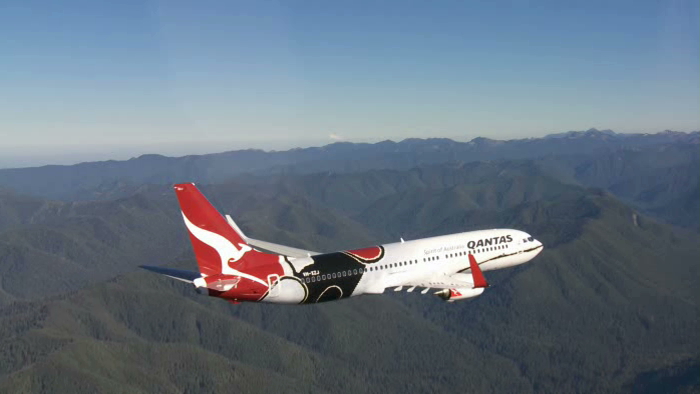QANTAS is worth $A22 billion to Australia and generates almost 60,000 jobs, according to a newly released report that highlights the economic value of airlines to local economies.
The airline-commissioned study found the Qantas Group’s direct and indirect economic impact totalled $A11.5 billion, or 0.7 per cent of Australian GDP, but it also facilitated $A10.4 billion in additional value through the tourism spending of its passengers.
The airline’s contribution to GDP was bigger than many industries and about a third of the direct contribution made by coal mining, the report said.
The airline group directly and indirectly supported almost 60,000 jobs, more than 29,000 employed by the group itself and another 29,535 employed indirectly as a result of its operations.
The report’s authors estimated that one in eight tourism jobs were attributable to the spending of passengers on Qantas Group airlines.
“In addition to the contribution generated by its operations, the Qantas Group plays an instrumental role in supporting tourism in Australia, both through facilitating air travel by domestic and international passengers and through marketing Australian tourism destinations to domestic and international consumers,’’ the report said.
“In particular, the extensive network operated by the Qantas Group plays a pivotal role in allowing tourists to access many regional destinations throughout Australia.”
A breakdown of states showed New South Wales and the Australian Capital Territory , which account 29 per cent of group passenger departures, were the biggest beneficiaries with a direct and indirect economic contribution of $A4.2 billion. NSW is also the site of the Qantas headquarters.
Victoria, the headquarters of Jetstar, come next at $A2.8 billion followed by Queensland ($A2.5bn) Western Australia ($1bn), South Australia ($538m) Tasmania ($A185m) and the Northern Territory ($156m).
In terms of business units, Qantas was the biggest contributor with a direct economic contribution of $5.2 billion and indirect contribution of $A3.45 billion. Jetstar added another $A1.35 billion in direct and $A942 billion in indirect contributions, followed by Qantas Freight with $237 million direct and $298 million indirect.
The airline also released a report of its tax payments for the 2015 and 2016 financial years, showing it paid $SA2.5 billion in tax during 2015-16 and $A2.3 billion in 2014-15.
But the airline did not pay company tax due to previous losses and a write-down of the value of its aircraft fleet in 2014.
“Qantas continues to work through accumulated tax losses – including from its record financial loss in 2014 – meaning it’s not currently required to pay company tax,’’ it said. “However, its overall tax contribution is spread widely across a range of categories, including ticket taxes, payroll tax, fuel excise and the GST.
“Company tax payments will resume once Qantas’ tax losses have been used up, in accordance with tax law, resulting in an even more significant contribution to public finances and the Australian economy.”
























